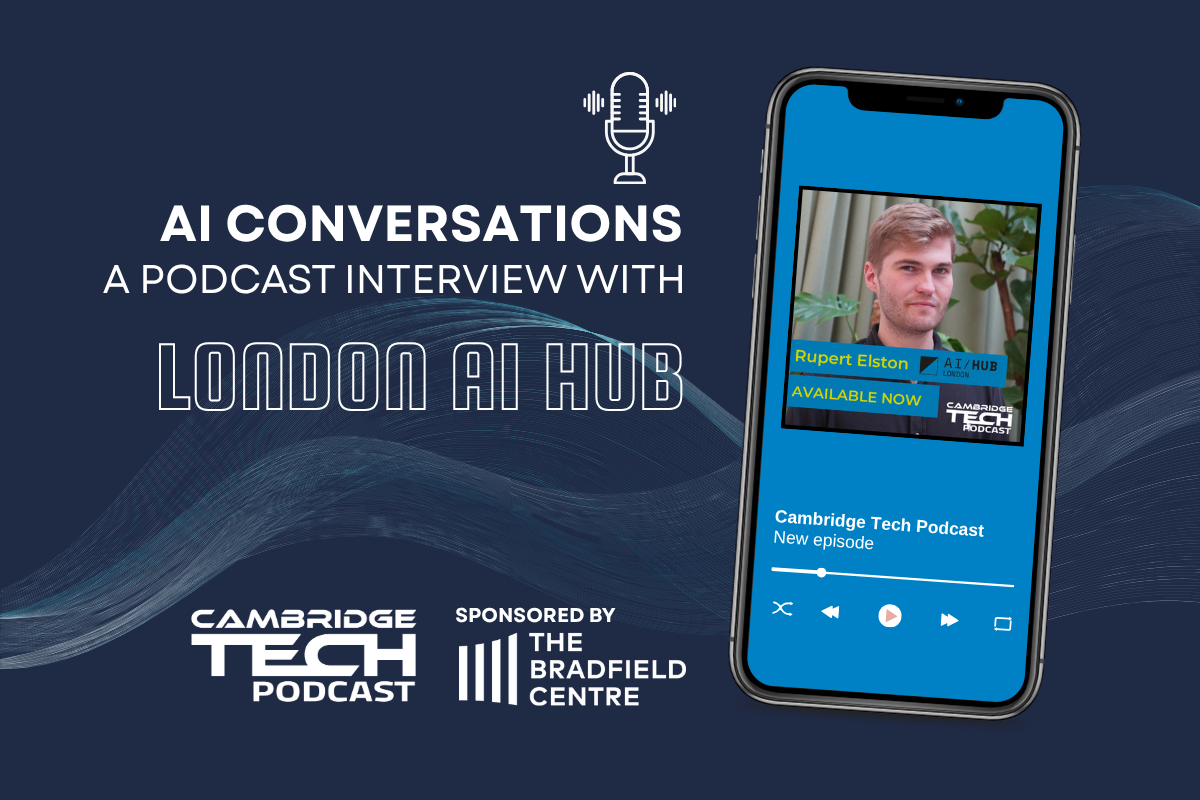Hosts Faye Holland and James Parton guide us through the latest stories making waves across the Cambridge and wider UK tech scene before diving deep with Rupert Elston, Head of the new London AI Hub, discussing how they’re uniting the fragmented London AI ecosystem.
Uniting London AI: Rupert Elston on the London AI Hub
The main event is an in-depth interview with Rupert Elston, who shares his journey from Oxford to his role developing the London AI Hub, a critical new hub for the UK’s thriving AI startup scene.
Rupert explains:
“Over 3,000 AI startups operate in London, but until now, the ecosystem was fragmented into clusters. That fragmentation was prohibitive to the UK really leading the charge in AI.”
The London AI Hub is designed to overcome those silos, providing both a go-to venue for AI founders and a central meeting place for collaboration, policy, and innovation.
Impact in just 8 months:
Nearly 40 events held and approx. 3,000 participants engaged.
15 resident AI startups—across health, enterprise SaaS, wearables, and more.
Startups in the hub are seeing tangible growth: “Of the 12 with us over three months, 9 expanded teams, 5 closed funding rounds.”
Sector Diversity & Collaboration: Startups benefit from cross-industry perspectives, as conversations and demos among resident teams spark unexpected solutions.
Building for the Future:
The hub isn’t just for Londoners; plans are being shaped for recording and sharing events UK-wide and building links with hubs in cities like Glasgow and Manchester.
Policy & Government Engagement: Rupert highlights open dialogue with UK policymakers—hosting roundtables for founders to directly influence AI policy and public sector innovation.
“It’s about putting founders and regulators in the same room and letting them be heard.”
What’s Next for the London AI Hub?
Rupert teases an exciting year ahead:
Expansion of resident startups by another 5-10 companies.
Deeper community engagement, with segmented, targeted event series—think demo days for investors and specialist sessions on topics like AI in decarbonisation.
Better communication to ensure no one misses out: “One of my greatest problems is after an event, getting a message—‘Why didn’t I hear about this?’ That’s the problem I’m trying to solve!”

